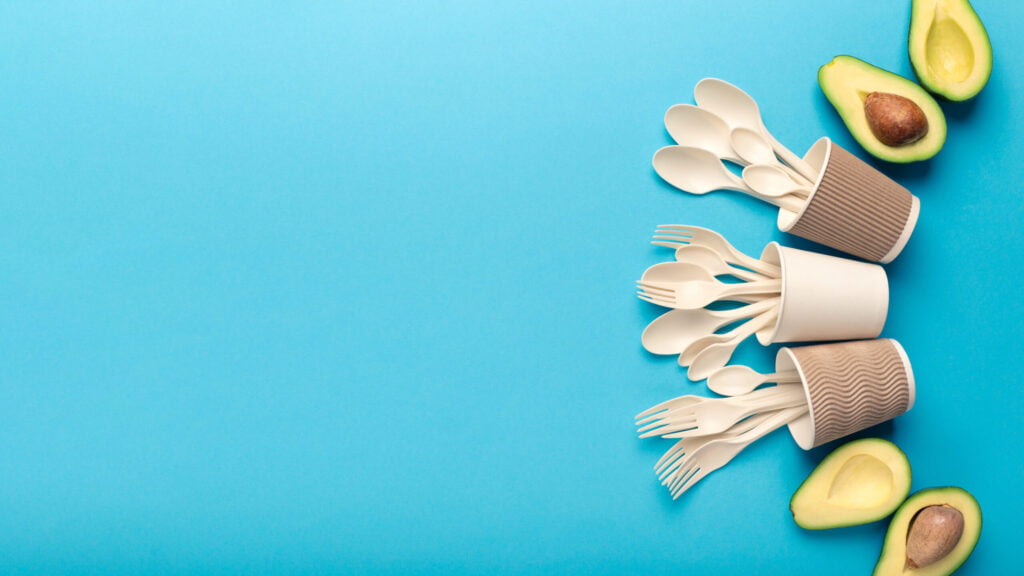Are you looking for ways to reduce your plastic use? Traditional plastic is widely used in everyday items such as water bottles, packaging, and even items like toothbrushes and razor blades. But with the growing awareness of plastic’s impact on the environment, many are beginning to look for alternatives. Keep reading to find out what some of those alternatives are.
Bioplastics
Bioplastics are an eco-friendly alternative to traditional plastic. Made from renewable resources like vegetable fats, corn starch, and sugarcane, these biodegradable materials can be broken down by microorganisms and do not contribute to plastic pollution. Companies like Earthwise Packaging have developed BioMax bioplastics that have similar properties to traditional plastics, but without the harmful environmental impact.
One of the benefits of using BioMax bioplastics is that they can help reduce our reliance on fossil fuels. Traditional plastics are made from petroleum, a non-renewable resource that is becoming increasingly scarce. In contrast, BioMax bioplastics are made from renewable resources that can be replenished over time. Additionally, BioMax bioplastics have been shown to biodegrade much faster than traditional plastics, which can take hundreds of years to break down. This makes them a more sustainable and environmentally friendly option for a wide range of applications, from food packaging to automotive parts.
Paper

Paper is becoming an increasingly popular alternative to traditional plastic packaging. Unlike plastic, which can take hundreds of years to decompose and often end up polluting the environment, paper is biodegradable and recyclable. This makes it a more environmentally-friendly choice for businesses and consumers who want to reduce their environmental impact.
In addition to being more sustainable, paper packaging can also be more aesthetically pleasing and versatile than plastic. Paper can be easily printed on and can be shaped into a variety of sizes and forms, making it a popular choice for everything from food packaging to gift wrapping. As more and more businesses and consumers become aware of the environmental impact of plastic packaging, the demand for paper and other sustainable alternatives is likely to continue to grow.
Glass
Glass packaging is becoming an increasingly popular alternative to traditional plastic packaging due to its many benefits. Glass is a sustainable and eco-friendly material that can be recycled indefinitely without losing quality or purity. Unlike plastic, glass is also non-toxic and does not release harmful chemicals into food or the environment.
In addition to its sustainability benefits, glass is also an attractive and versatile packaging material that can be customized to fit a variety of product needs. Glass can be molded into a wide range of shapes and sizes, making it suitable for everything from cosmetics and personal care products to food and beverages. With its many benefits and growing popularity, glass packaging is an excellent choice for those looking for a sustainable and high-quality packaging solution.
Bamboo

Bamboo is becoming an increasingly popular alternative to traditional plastic packaging due to its sustainability and durability. Bamboo is a fast-growing, renewable resource that can be grown without the use of pesticides or fertilizers, making it an environmentally-friendly choice. Additionally, bamboo is biodegradable and compostable, meaning it can break down naturally over time and does not contribute to the problem of plastic waste.
In addition to being sustainable, bamboo is also a durable and versatile material that can be used for a wide range of packaging applications. Bamboo can be processed into a variety of forms, including sheets, rolls, and molded shapes, making it suitable for use in packaging for products ranging from food to electronics. With its many benefits, bamboo is quickly becoming a popular choice for businesses looking to reduce their environmental impact and offer sustainable packaging options to their customers.
Overall, it is clear that transitioning away from traditional plastic is essential for protecting the environment and human health. Alternatives such as bioplastics, paper, and glass offer a more sustainable and eco-friendly solution that can help reduce plastic pollution and its harmful effects.

























